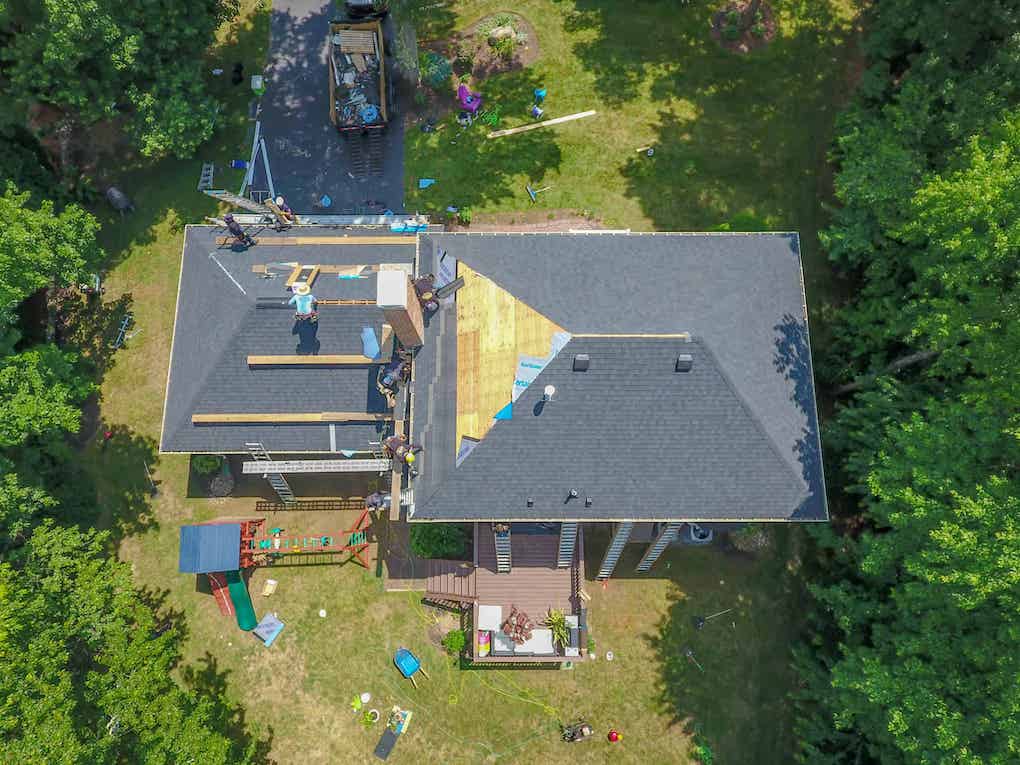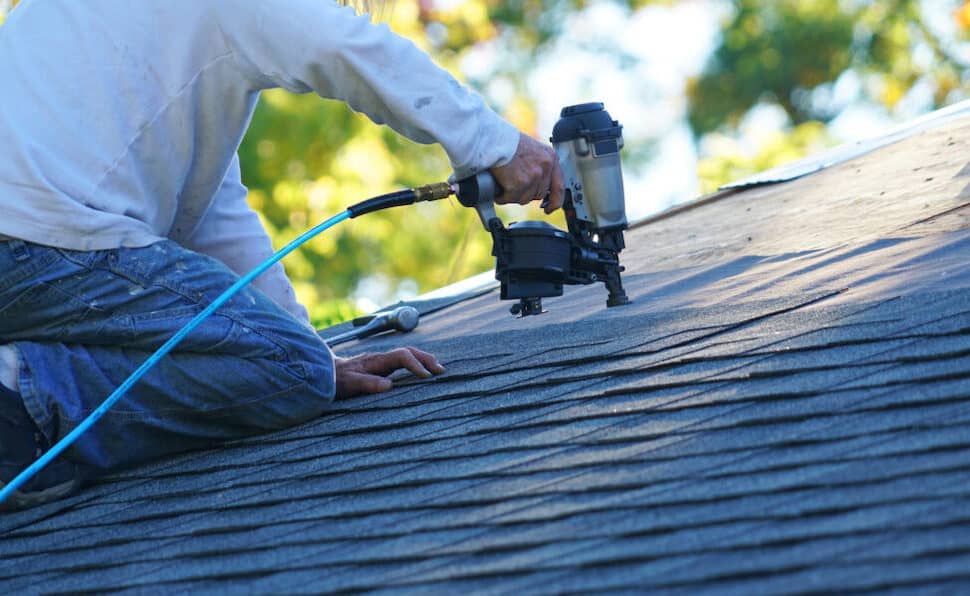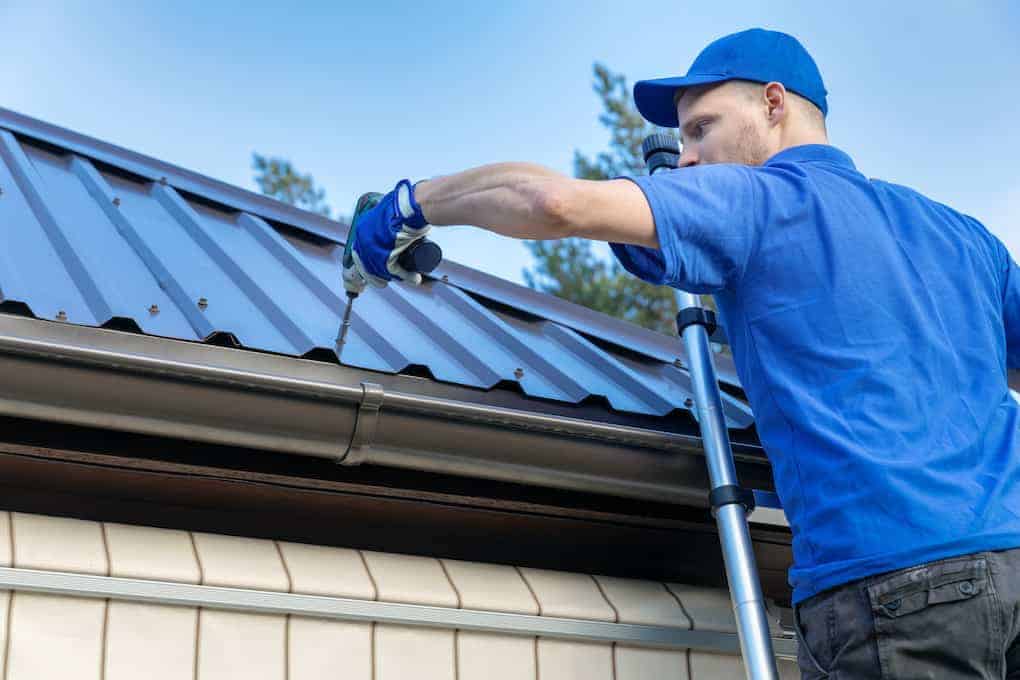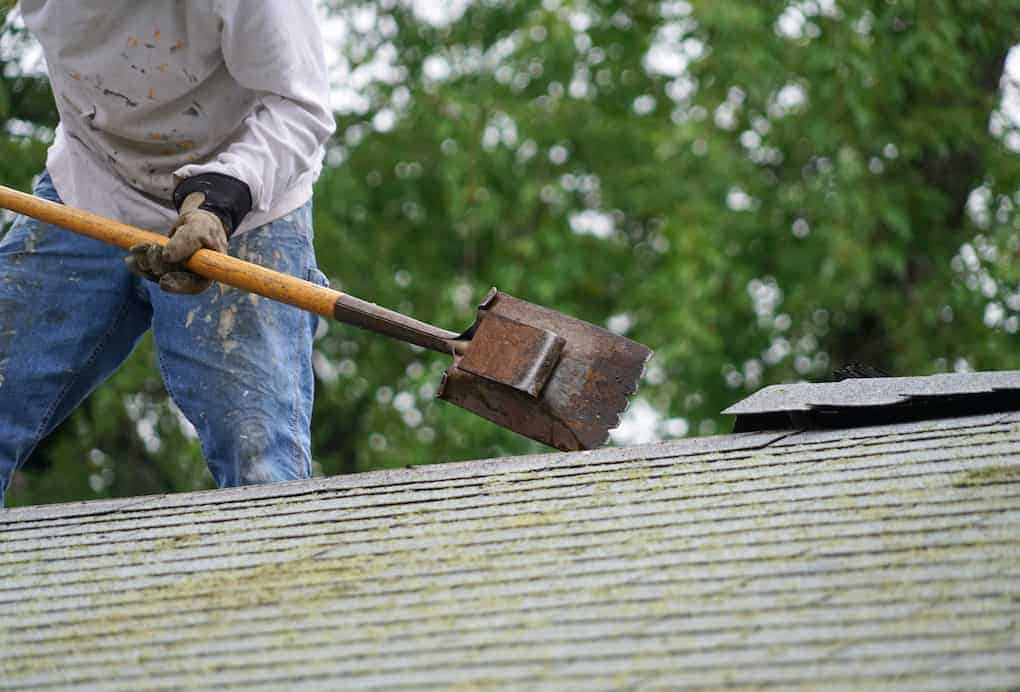When you get a new roof, a big deciding factor in which brand or roofing material you go with will be based on how good the warranty is. A roof warranty is going to protect your roof on many levels: from the materials to the workmanship and any damage that occurred during its lifespan. But, reading and understanding the warranties can be tough as there is industry lingo and details that homeowners must decipher to truly understand what coverage they’re getting. We’ll explain how warranties work, what you can expect from them, and help define terms like a pro-rated and limited warranty to help understand your standard roof warranty.

Do I Need a Roof Warranty?
Technically, no, you don’t need to have a roof warranty. But do you want one? Absolutely. The consequences of not having any warranty coverage for your roof investment could be detrimental. Warranties help cover you when materials or the roof itself fails due to poor materials or installation and workmanship. These are things out of your control and can occur at a moment’s notice, even shortly after you install your roof.
Imagine paying thousands of dollars to install your new roof, and poor workmanship causes it to leak in the first year. Without a warranty, you will be paying out of pocket for those repairs, whereas a warrantied roof would repair that leak thanks to a workmanship warranty that promises the installation of your roof was done correctly and will withstand the life of the roof.
 forfo
forfo
What Does a Standard Roof Warranty Look Like?
Typically, a standard roof warranty will include two types of warranties—first, a material warranty, and then a workmanship warranty. One generally comes from the manufacturer, and the other would come from the contractor to cover their installation.
Material Warranty
A material warranty is a manufacturer warranty that is going to cover roofing material defects or irregularities. Defective materials can cause damage and leaks, which is beyond your control and doesn’t require external damage from storms or debris to cause it. If the material lacks integrity, it will be covered by this material warranty.
As far as the length of warranties, it depends on the roofing material’s expected lifespan. For example, your basic asphalt shingle roof lasts anywhere from 15 to 30 years, so the material warranty for those ranges between 15 and 25 years of coverage. A manufacturer who poses a longer warranty for their materials shows they really believe in their product and expect it to last as long as it is intended.
It’s important to keep in mind the various parameters of these types of warranties, as they are not always a one-size-fits-all deal. Some material warranties may only cover the cost of new materials and not the installation. Or some material warranties may have stipulations where the shingles may be covered, but not all of the other aspects of your roof, such as gutters, vents, underlayment, etc. Always read the warranty thoroughly before signing anything, so you don’t get surprised later on thinking you’re covered when you’re not.

Workmanship Warranty
A workmanship warranty, on the other hand, covers the physical installation of the roofing materials. A workmanship warranty is as critical as material coverage because even the best roofing material in the world can fail if it is not installed properly. A workmanship warranty will offer homeowners protection for both labor and installation of their new roof.
Lengths of workmanship warranties can vary greatly depending on the contractor. There can be workmanship warranties that range anywhere from 2 years to a lifetime. So essentially, any damage that occurs that is related to how the roof was installed, those repairs would be covered. Workmanship warranties give you great peace of mind, and the longer the warranty, the more evidence that you’ve chosen a trustworthy contractor. If you find yourself with a 20+ year workmanship warranty, it shows that those contractors stand by their work and guarantee it will be done right the first time.
Questions to Ask Regarding Your Roof Warranty
If you are getting a workmanship warranty from your contractor, you should ask some critical questions before moving forward with the new roof installation. These can ensure you get the coverage you need, and there won’t be any surprises down the road. You also might be able to negotiate some terms if you ask the right questions. Ask your contractor the following:
- Am I getting both a material and workmanship warranty?
- Do you offer extended warranties?
- How long is each warranty for?
- What types of things can void my warranty?
- What can I do/not do to ensure my roof remains covered under warranty?
- What types of damage are not covered under this warranty?
- Will interior damage be covered as well?

What Does Lifetime Warranty Really Mean?
The industry standard for shingles is a limited lifetime warranty. The “lifetime” does not necessarily mean the life of the shingles, but it’s for the entire time you own your home/roof. Some lifetime warranties are transferrable to new owners, which can be especially helpful if you are replacing your roof in order to sell. But, ensure your lifetime warranty is transferrable before installing that new roof. Additionally, the lifetime warranty will be for your material warranty, not the workmanship (in the majority of cases).
Roof Warranty Terms & Vocabulary
Because warranties can be very complex and complicated to understand, it can help to know some common terms and lingo used both in warranties and to describe warranty coverage. Here are a few industry terms and their definitions to help you understand them more fully.
Contractor or Workmanship warranty: As we’ve discussed, the workmanship warranty is offered protection for labor and installation of your new roof.
Determination of applicability: When damage occurs on the roof, or there are signs of a leak, the contractor may sometimes determine the applicability of whether the type of damage should be included under warranty.
Extended warranty: Homeowners can sometimes have an opportunity to purchase an extended warranty that extends their existing warranty coverage. They are sometimes worth it depending on the length of the warranties offered or how long you plan to own your home.
Lifetime: A lifetime warranty means the coverage lasts for as long as you own your home/roof. It does not mean your life or the life of your roof.
Limited warranty: A limited warranty may mean only certain materials or aspects of the installation are covered.
Manufacturer warranty: A manufacturer warranty comes from the manufacturer of the product itself. Material/defect warranties are always going to be manufacturer warranties, whereas workmanship warranties would not be.
Methods of installation: Methods of installation are just as it sounds: the method in which the roof was installed. Some warranties may only provide workmanship coverage if a certain installation method is used and void if not. Certain manufacturers require shingles or panels be installed a specific way, and that method must be performed to ensure proper installation of the product.

Prorated: A prorated warranty means the warranty might cover 100% of damages or defects in the early years of the warranty and taper off with limitations after that. A non prorated warranty would ensure 100% coverage for the entirety of your warranty.
No Dollar Limit (NDL): A roof with a “no dollar limit” warranty is one of the best you can get because it means the contractor will cover all defects no matter the cost of the materials.
Scope of coverage: The scope of coverage is essentially the entire scope or details of what is or isn’t covered under your warranties.
System performance: System performance is the entirety of your roof system (underlayment, shingles, flashing, gutters, etc.) and how they work as a cohesive unit. System performance can be critical to ensuring warranty coverage and maintaining the integrity of the materials.
Transferrable: Transferrable warranties can be transferred to the next owner of the home. They are often a little more expensive but can be worth it if you are replacing your roof to sell your home at a higher value.
Void warranty: A void warranty happens when something is done that nullifies the warranty’s coverage. For example, a homeowner does some of their own repairs and causes damage to the shingles. This would void the warranty as it was not caused by poor installation or a defective shingle.

Warranty exclusions: Contractors or manufacturers can add certain exclusions to their warranties that would not be covered under the contract—for example, homeowner negligence, natural disasters, etc. We’ve laid out some of the industry-standard practices for both material and workmanship warranties, but these can still greatly vary by brands and companies. So whenever you are in the market for a new roof, ask your contractors about all of the details of their warranties as well as for your research to determine which brands offer the best warranties. Sometimes starting with who has the best warranty can be the best path to take to make sure your new roof stays good as new for years to come. Another deciding factor aside from warranties when it comes to installing a new roof is price. To find out more information about the asphalt shingles today; check out our post here.
